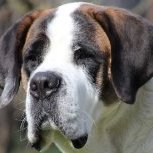Crow Tribe elder, historian Joe Medicine Crow dead at 102
-
Recently Browsing 0 members
- No registered users viewing this page.
-
Topics
-
-
Popular Contributors
-
-
Latest posts...
-
1,603
Updates and events in the War in Ukraine 2025
Has he been banned he seems to have dissapeared or on ROPS as they say over theretyhough I might be wrong on the meaning of that word. -
152
-
1,603
Updates and events in the War in Ukraine 2025
Was a Trot way back when I'm now a democratic socialist voted Labour all my life come rain or shine but at th next election may vote for the Greens or Jeremy's Corbyn's new party. Oh and I did visit the USSR exhibtion in Earl's Court in 1979 in the interest of full disclosure. -
50
Accident Brit Now Faces 10yrs in Jail After Pattaya Crash Death
I don’t know. I recall many years ago a guy was shot in Pattaya by two guys ion a scooter. They were western scammers operating in Thailand, and it was a revenge hit. Anyway, both fled to Cambodia … and I don’t think they were ever detained? I’ve always wondered what happened to them? So it might be possible. if anyone knows … please comment. -
819
Israel Hamas War the Widening Middle East Conflict
You lied. You claimed the IDF put 30 babies in the oven. Provide a link. -
395
Immigration Thailand Digital Arrival Card. TDAC
Thanks - thus confirming that the other fields truly are optional, as i thought.,
-
-
Popular in The Pub



.thumb.jpg.3ee24d9400fb02605ea21bc13b1bf901.jpg)




.thumb.png.59631667ecf82c97db947523760c9cdd.png)

.thumb.jpg.bc523c85a8d558dbc282dca7a2e602c9.jpg)
Recommended Posts
Create an account or sign in to comment
You need to be a member in order to leave a comment
Create an account
Sign up for a new account in our community. It's easy!
Register a new accountSign in
Already have an account? Sign in here.
Sign In Now